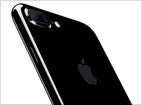Apple is on a renewed push to become more relevant in the enterprise, but unlike past efforts, the company under CEO Tim Cook has finally realized that it can’t go it alone.
Technology, of course, is the underpinning of this strategy, but there is a twist: The company has long realized that it’s what you do with technology that makes a difference to consumers, so in going after the enterprise market it is focusing on the use cases for Apple products and services, not simply raw power or advanced engineering.
This is partly why Apple’s recent agreement with Deloitte is probably the most significant in the company’s recent history. Deloitte specializes in helping large organizations overcome logistical and operational challenges to business productivity – sometimes through technology solutions and sometimes through changes to processes or even underlying business models. Under the EnterpriseNext initiative, says Fortune Magazine, more than 5,000 Deloitte consultants will be unleashed on the enterprise industry to show how Apple products can convert today’s static infrastructure into the dynamic data ecosystem that will support the transition to a digital and service-based economy.
This isn’t to say the company’s flagship device, the iPhone, is not relevant to the enterprise. In fact, says IHS market researcher Ian Fogg, the iPhone 7 may be the most business-friendly model in the line, despite, or perhaps because of, the absence of an audio jack. As he explained to CIO, most business users already employ Bluetooth-enabled ear pieces to make calls and access audio files, so this simply continues the hands-free work style that characterizes the modern, mobile knowledge worker. At the same time, the 7 is more rugged, with improved water and dust resistance, and provides more internal memory and faster processing in the form of the quad-core A10 Fusion chip.
But as most consumers already know, the real secret sauce is the Apple ecosystem, not the device. Not only does Apple provide a wealth of productivity tools within the iOS universe, according to Computerworld, it provides near seamless transparency with the installed base of Windows products at most organizations, as well as with the Microsoft Azure cloud. Add to that the world-class security and partnerships with other enterprise technology leaders like Cisco and IBM and you have the basis for a powerful business tool. It also doesn’t hurt that Apple is the preferred device among the millennial generation, which is quickly reshaping the business world through enhanced collaboration, file-sharing and social media.
To get more Apple products into the enterprise, of course, the company needs to become more business-friendly in terms of sales and support. To that end, says MOBI’s Mitch Berry, the company has launched the Device Enrollment Program (DEP) and Volume Purchase Program (VPP) to undo many of the hitches that large organizations face when deploying Apple devices at scale. As well, Apple recently unveiled a suite of new connectivity and productivity tools to allow users to get up to speed quickly and easily. These include a new notification system that keeps users up to date on upgrades and alterations to apps and internal systems, as well as the Universal Clipboard for greater data continuity between devices, and the CallKit API for improved VoIP functionality.
In the old days, Apple liked to exert full control over its computing environment; everything connected to the Mac had to have Apple’s official stamp of approval before it could access any data. Nowadays, that kind of control is simply impossible, in part because of the mobile data environment that Apple itself brought into the mainstream.
Now that this ecosystem has reached a level of maturity, at least on the consumer side, Apple – along with virtually every other tech vendor – must tap the more lucrative enterprise market in order to maintain growth. Business pros, of course, have higher expectations than consumers, so they could be a tough nut to crack. But once they find something they like, they are willing to pay a premium for it.
Arthur Cole writes about infrastructure for IT Business Edge. Cole has been covering the high-tech media and computing industries for more than 20 years, having served as editor of TV Technology, Video Technology News, Internet News and Multimedia Weekly. His contributions have appeared in Communications Today and Enterprise Networking Planet and as web content for numerous high-tech clients like TwinStrata and Carpathia. Follow Art on Twitter @acole602.



